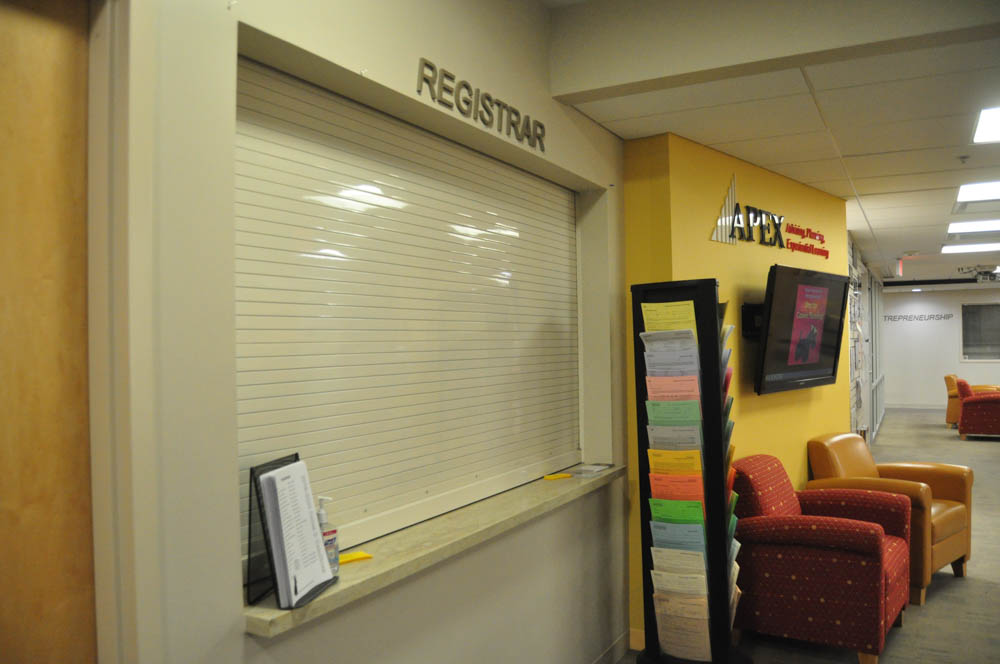
Waverly Hart
Editor in Chief
On Monday, Feb. 3, the faculty voted to change their policy on accepting transfer credits and International Baccalaureate (IB) exam scores, as well as changing the final exam schedule.
These changes were brought to the faculty by the Educational Policy Committee (EPC), which reviewed the changes and made a legislative decision on them. The changes the faculty ratified include accepting transfer credits from outside institutions, including credits from online classes, dual-enrollment programs and College Credit Plus. In addition to accepting these credits, the College will now accept IB scores on exams scored five through seven.
According to Dean for Curriculum and Academic Engagement Bryan Karazsia, who serves as the co-chair of the EPC along with Professor of biology Bill Morgan, these changes are effective immediately. Karazsia believes the acceptance of credits from dual-enrollment programs will attract and retain Wooster students.
“I suspect the change that will be most relevant to [incoming students] is the dual-enrollment policy,” Karazsia stated. “I know in the past that many prospective students lost interest in the College because their dual-enrollment coursework was not recognized via transfer credit at the College. For current students, it is [in] effect for them, too.” Karazsia also urged any students who think they might have credits that could apply to their “academic progress” to visit the Registrar’s office.
Both Karazsia and Basliel Ababayehu ’22, a student representative on EPC, said the decision in accepting transfer credits from accredited institutions came from discussions about equity. Ababayehu said these discussions were delegated to a sub-committee.
“This subcommittee raised concerns in equity and the College’s competitiveness in the higher education market,” Ababayehu stated. “This subcommittee found that accepting credit in the form of dual- credit and online courses would be more equitable and provide the College a competitive advantage.”
Karazsia echoed this statement, saying the change makes Wooster more equitable and competitive with similar institutions.
“Some students who might benefit from earning credit over the summer, for example, simply might not have access to coursework that fit our previous criteria for transfer acceptable. This could be due to geographic, transportation or a host of other reasons,” Karazsia stated. “Thus, we felt that the prior requirement was creating inequities for students. The second dimension was competitive advantage. Students who engage in IB programs … or who complete dual-enrollment coursework … are engaged in very high-level work. Most of our peer institutions recognized this work through their policies, and so we were at a competitive disadvantage.”
Karazsia says the push for these changes came from President Sarah Bolton. “President Bolton has really pushed faculty and staff at Wooster to think carefully about structures (including policies) that create inequities for students,” he stated. “As we reflected on this message, and as we worked with students affected differently by different policies, we realized that we could become a more equitable institution.”
Ababayehu is “ecstatic” about the decision to accept college credit and online credits, and think it will make The College of Wooster more accessible to all students.
“In my experience, online courses are more cost-efficient than the traditional brick-and-mortar courses,” Ababayehu stated. “With this change in place, a student who may otherwise have to spend an extra semester on campus can more affordably complete an on-line course and graduate on time. Without this change, students who need more credits but can not afford to take extra courses at a college campus during the summer are at a disadvantage because of their financial situation.”
In addition to the changes in transfer credit policy and IB exam scores, the faculty also ratified a new final exam schedule, which will make its debut at the end of the spring semester. Now each exam will be two and a half hours, instead of the three hour or two hour slots used in the past. Exam one will take place from 8:00 – 10:30 a.m., exam two at 12:00 – 2:30 p.m. and exam three at 4:00 – 6:30 p.m.
Karazsia said that the exam schedule of two years ago, which started at 8:00 a.m. and lasted until 10:00 p.m., presented concerns over learning, safety and balancing academics with student life. As a result, they piloted the most recent final exam structure, in which students took exams in a two hour time slot. EPC then solicited hundreds of survey responses to find out how students felt about the final exam schedule and worked to make it better.
“The current exam schedule of two hours did not produce a favorable impact amongst both students and professors, especially in STEM courses,” Ababayehu said. “It proved particularly difficult to fully test student knowledge in a two hour cumulative exam. So, it was reported that students felt that the actual exams were not shortened proportionately to the shortening of the time.”
As a middle ground, EPC and faculty decided on two and a half hour exams. “In my experience, two hour exams are too short for a comprehensive exam in courses that are not essay based,” Ababayehu stated. “I believe that there is little harm in increasing the time because a student done early is always welcome to leave the exam, but I have experienced that the length of some of my exams in STEM courses warrant a longer duration to truly reflect a student’s understanding of the material.”
EPC manages some significant changes occurring at the College, and Karazsia says they have a full schedule the rest of the semester. Moving forward, Karazsia says EPC will be “studying and making recommendations on [tenure-track] faculty lines.”
